

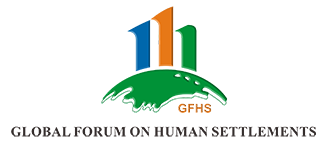
Committed to Sustainable Cities and Human Settlements for All

In Special Consultative Status with ECOSOC
Abstract: Near the city center of Berlin, the vision of an "intelligent city of tomorrow” is being developed at the EUREF-Campus. Ecologically and economically sustainable business concepts make the EUREF-Campus a unique office and science location and one of the first integrated urban districts of this kind in Europe. EUREF Campus combines renovated historic industrial buildings with sophisticated new office space, educational institutions, residential buildings, and a variety of services. On the EUREF Campus, compact and efficient urban land use is surrounded by attractive parks, greenery, and open space, providing a modern, imposing environment.
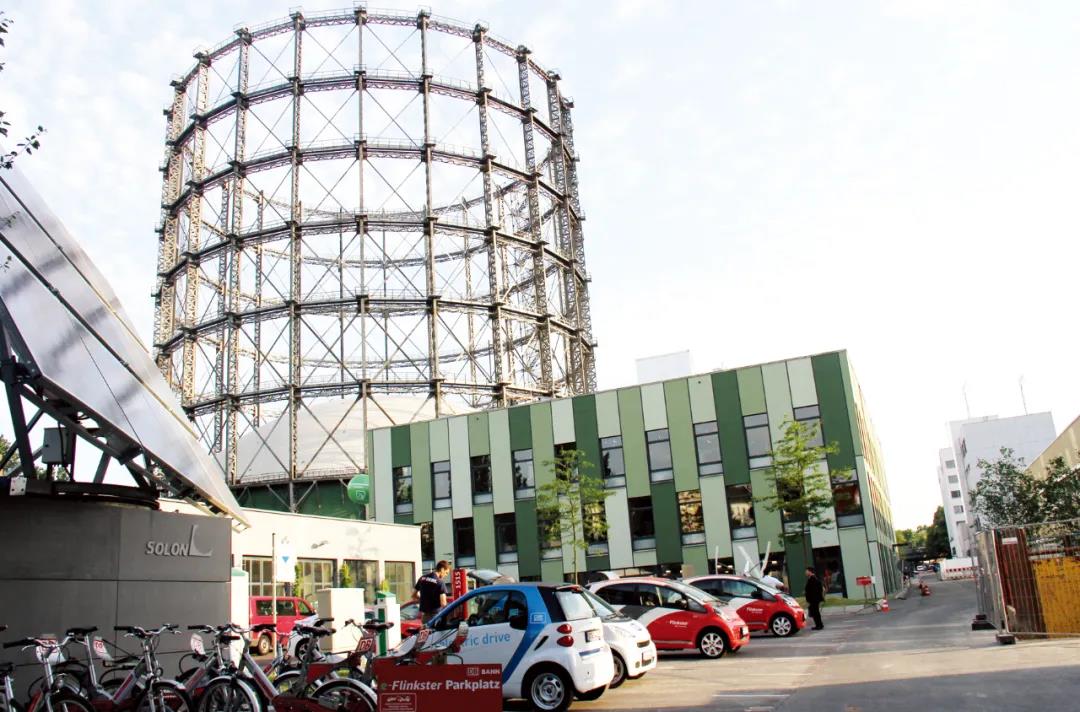
Overview of the urban renewal project
EUREF AG is an innovative German real estate (re)development corporation established in 2007. Its name is derived from the acronym of European Energy Forum (EUREF). The EUREF Campus concept seeks to advance compact urban (re)development, combining conservation of existing built industrial and cultural heritage with the construction of modern office and residential space, using the most advanced designs and technologies. EUREF AG is fully committed to apply the principles and concepts of sustainable urban (re)development, including sustainable use energy and other resources, and environmental protection.
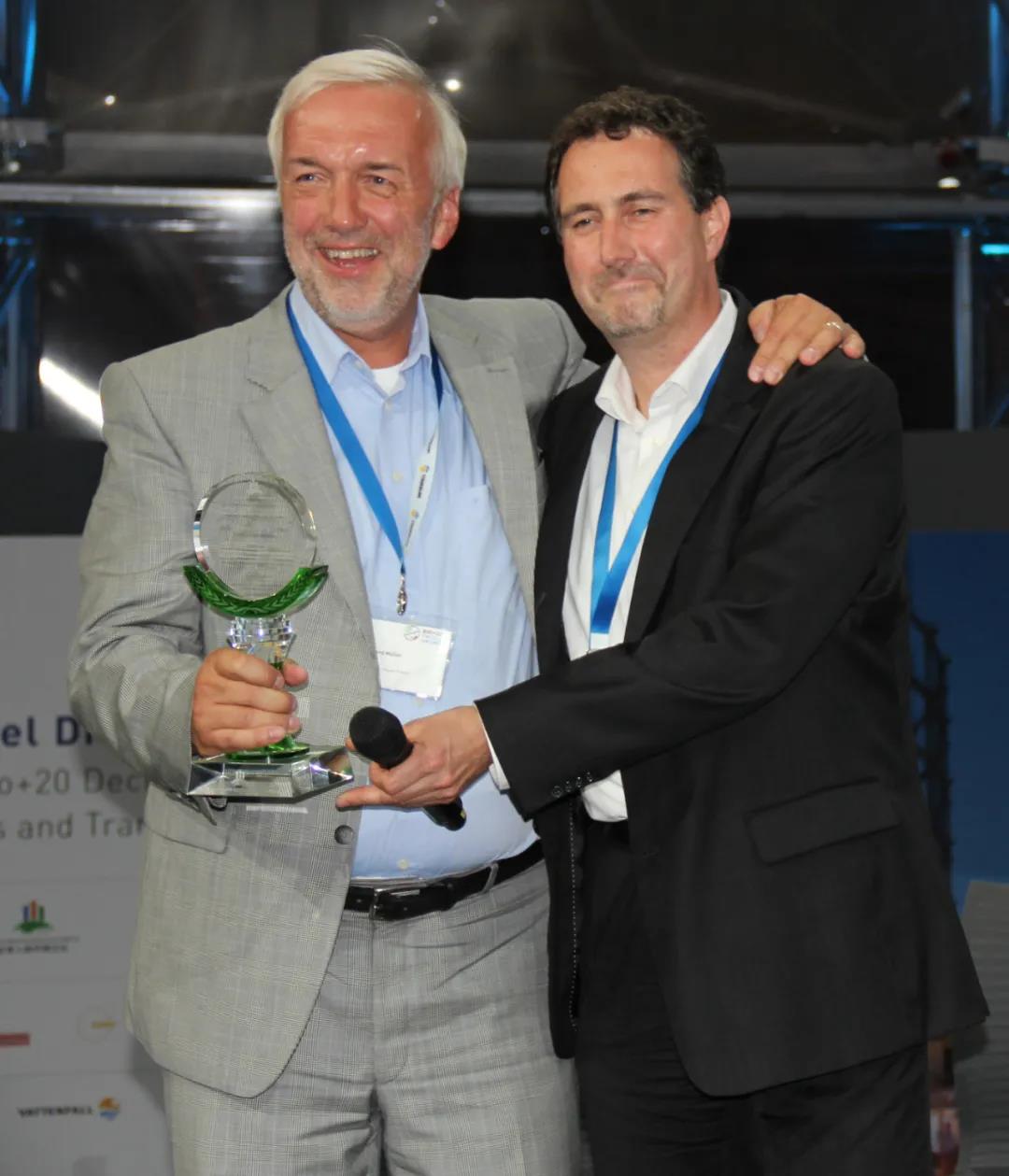
EUREF-Campus
was awarded the “Global Best Practice
of Urban Renewal”, Berlin, Germany
Photo credit by @ GFHS
Near the city center of Berlin, the vision of an "intelligent city of tomorrow” is being developed at the EUREF-Campus. Ecologically and economically sustainable business concepts make the EUREF-Campus a unique office and science location and one of the first integrated urban districts of this kind in Europe. Listed brick buildings, sophisticated new office and residential buildings and attractive parks, greenery and open space provide a modern environment. The most important features include the following:
• Central
location in Berlin-Schöneberg, easily accessible by public transport
• Around 55,000 square metres of land
• Around 165,000 square metres of floor space
• Once all (re)construction is completed, EUREF Campus can host some 150 companies as tenants and offer workspaces for 3,500 or more employees in about 25 buildings
• Some 15 per cent of the total floor space is set aside for residential purposes
• All new buildings are LEED gold certified as green buildings
• The EUREF campus features a smart micro grid with intelligent load management to optimize the entire energy use
• EUREF Campus uses locally generated renewable energy
• Short paths and attractive parks, greenery, and open spaces ensure "campus character"
• Restaurants, car-sharing, meeting and event venues, and further facilities for shared use
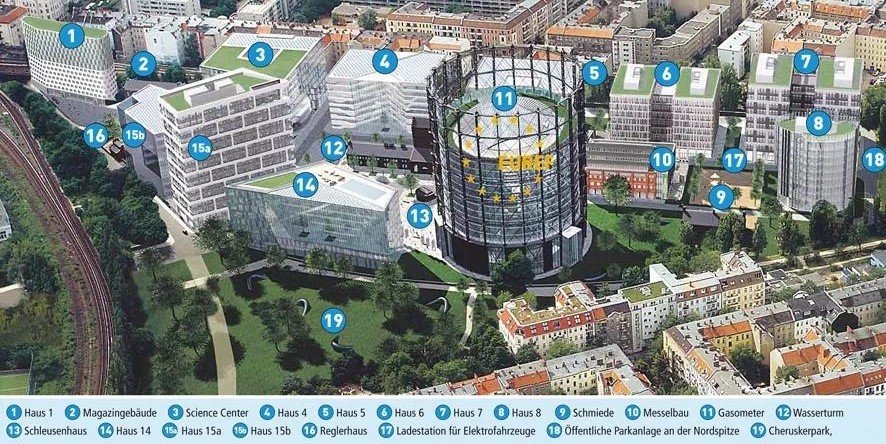
Many of the companies hosted by the EUREF-Campus are innovative business start-ups. At the time of the preparation of this report, tenants included the following newly formed companies: Climate Innovation Centre (Climate KIC), Deutsche Bahn Co-lab, E-on Agile, Effimo, Garamantis Interactive Technologies GmbH, Green Garage, InfraLab Berlin, Leaftech, MINT Microalgae Integration, Monitorfish GBR, Rising Generation, SIRPLUS, and Tracks GmbH. EUREF Campus facilitates multi-disciplinary analysis of all aspects of mobility and the intelligent city at the interface of renewable energy transformation, mobility systems and urban development.
EUREF Campus provides “Mobility as a Service” (MaaS) for its clients. It operates a pilot electric mobility platform fully equipped with a fleet of electric vehicles (EVs), charging infrastructure, renewable energy systems, micro-smart grid and user labs. Car-sharing, ride-sharing, and autonomous vehicles are being tested.
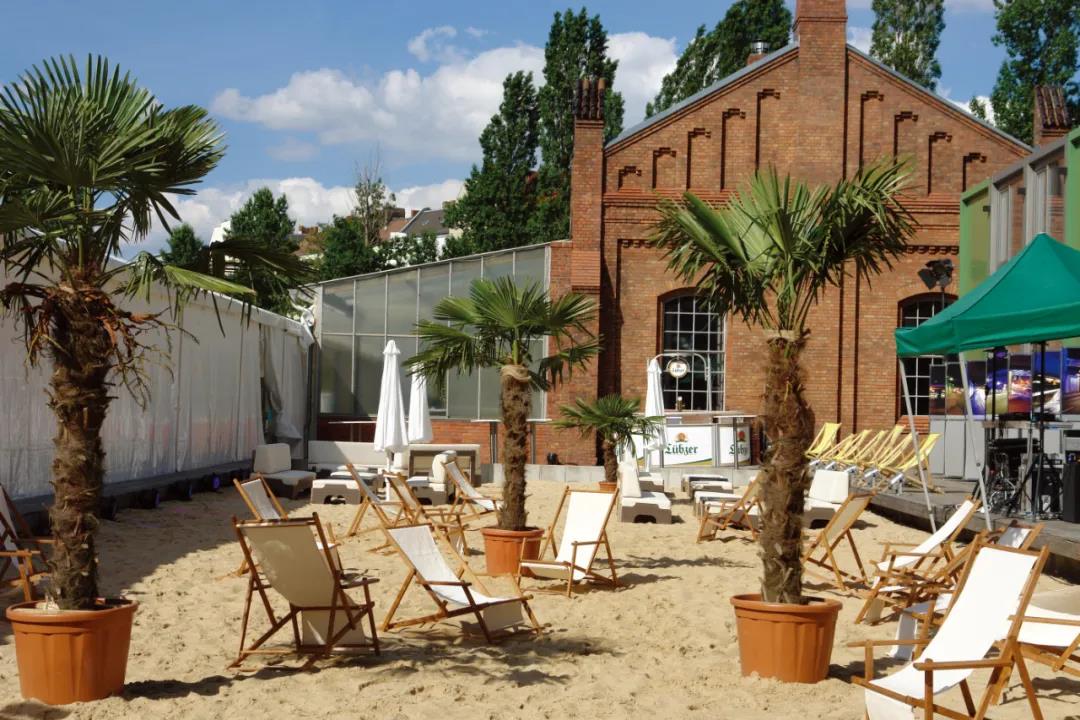
People-oriented and public engagement
The EUREF Campus is on the
historic industrial site of the former gasworks of Berlin with a round and very
tall former gas storage facility at its center. For several years, the base of
the former gas storage facility was used as an event location, including as the
stage of a popular international and German television show.
The EUREF Campus seeks to be
people-oriented. Its various projects on sustainable energy and mobility are
well documented and publicized. In addition to the students of the Technical
University of Berlin who study on the campus, the companies attract many
visitors coming to attend product presentations, conferences, or public
debates. At the EUREF Campus, visitors can see and learn about pilot projects
and new technologies, in particular concerning energy and traffic systems of
tomorrow. EUREF Campus showrooms include many interactive panels with touch
screens and user-friendly interfaces. At the EUREF Campus, public information
and public education content is presented in an attractive and interesting
manner. New and innovative technologies are demonstrated and tested.
Throughout Berlin, there are
"open house days" periodically to encourage the general public to
visit local cultural, scientific, or other public institutions. The "long
night of the sciences" and the "day of the open monument" are
such events which are also held at the EUREF-Campus. The campus area is also a
favoured place for local conferences like the "Berliner
Wirtschaftsgespräche" (Berlin Business Talks).
As Berlin's “Living Lab”,
the EUREF-Campus is open for guests and groups like national and international
experts, managers, senior officials, and politicians.
Living city with environment-friendly and
resource-conservation
EUREF Campus follows the
concept of the "living city", integrating the various urban
functions. The Campus provides space and integrates the functions of work,
education, research and living in a special way. Integrated urban (re)development
can offer the advantage of potentially minimizing the need for intra-urban
travel. People who work on EUREF Campus can easily use public transport and do
not need private motor vehicles to reach their work place. A considerable
number of staff members can also find residential space on or near the campus.
The campus offers several on-site restaurants, coffee shops, snack bars, and
sports facilities, as well as a bank. Integrated urban (re)development can
greatly enhance sustainability.
Some 25 renovated old as
well as new buildings cover the plot of 5.5 hectares. All of the new buildings
are qualified to obtain LEED gold certification. The electricity consumed on
the EUREF-Campus is partly generated locally by renewable energy technologies,
including wind turbines, solar panels, and a combined heat and power station.
The micro smart gird (MSG) provides an efficient energy management system to
meet local needs. A local battery storage facility re-using second-hand
batteries has also recently been added to the system.
The Carsharing-Station on
the EUREF-Campus includes parking spaces and charging stations for electric
carsharing-vehicles as well as an e-Bike-Rental-Station. New products like
“mobility cards” with different mobility service packages are also being
developed and tested at the EUREF Campus with the participation of the resident
users. One example is the “BahnCard 25 mobil plus”, which is a kind of a
membership card which offers subscribers discounts on railway tickets as well
as discounted access to other public transport services, including bike- and
car-sharing.
Selected innovations
1. Micro Smart Grid
The Micro Smart Grid (MSG)
is a power grid that intelligently connects different energy sources, energy
users and stationary and mobile power storage devices (such as car batteries).
The MSG is a site-specific grid tailored only the local area; hence the term
“micro” smart grid applies.
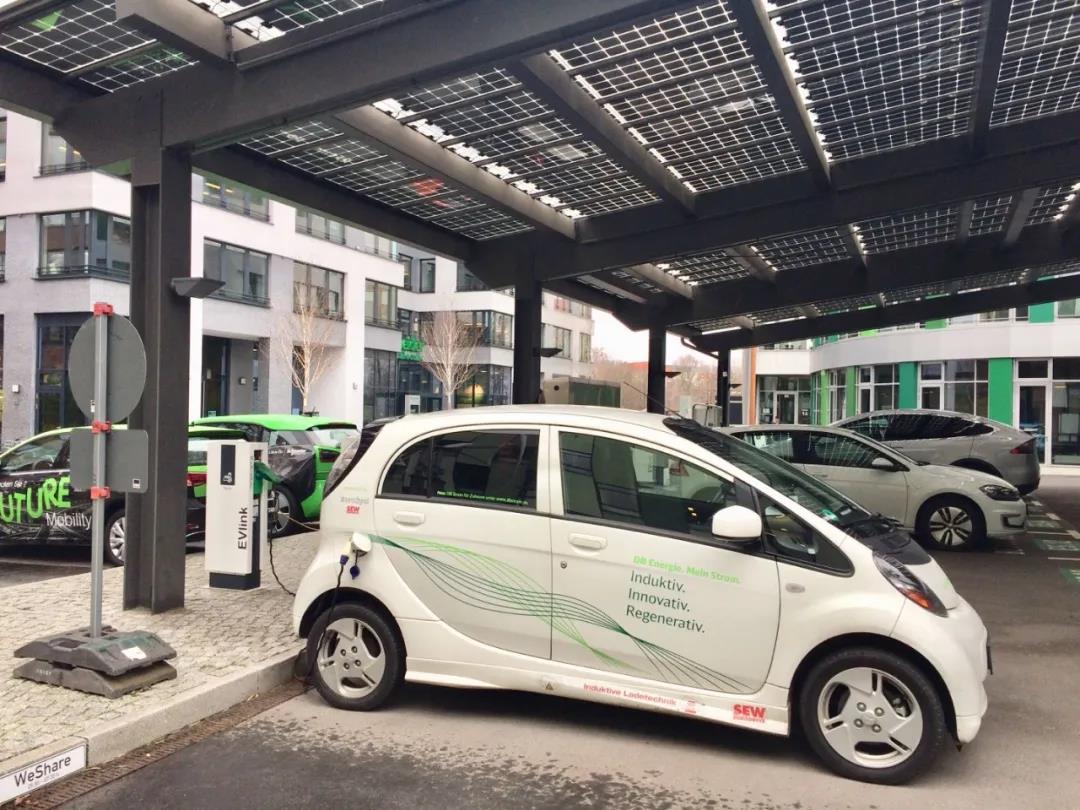
Charging device connected with intelligent micro-grid
Photography by Ralph Wahnschafft
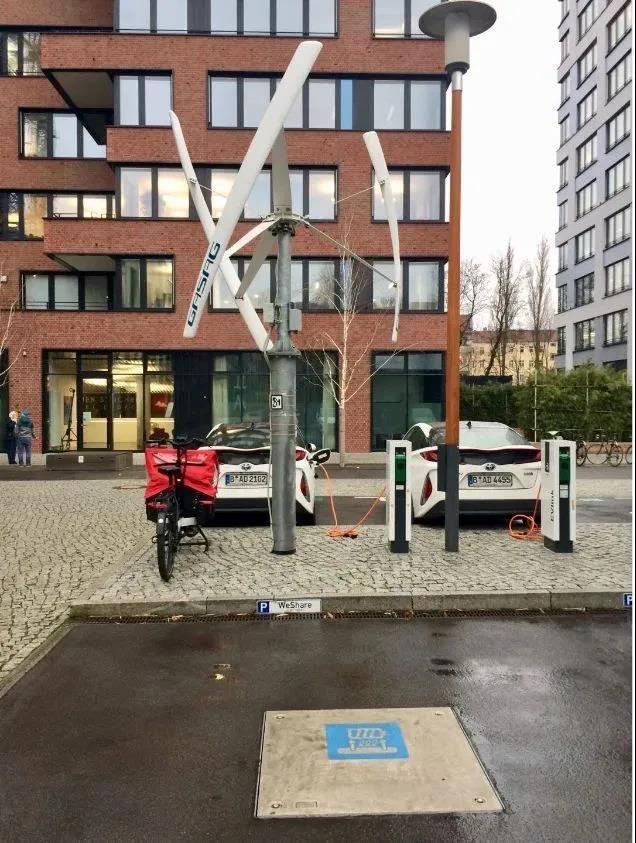
Photography by Ralph Wahnschafft
The
electro-mobility platform serves as hub for knowledge transfer on sustainable
mobility options. It features a number of permanent and temporary exhibits. The
monitoring and control centre of the micro-smart grid enables visitors to
better understand the benefits of integrated energy and mobility system.
5. Green-Garage
The
Green-Garage is a “crowd-funding” project which successfully mobilized funding
by private investors, companies residing on the EUREF-Campus, and members of
the general public. The Green-Garage project built a small solar power station
at the top of an old garage. The same building also houses the office of a
crowdfunding company that promotes investment in renewable energies.
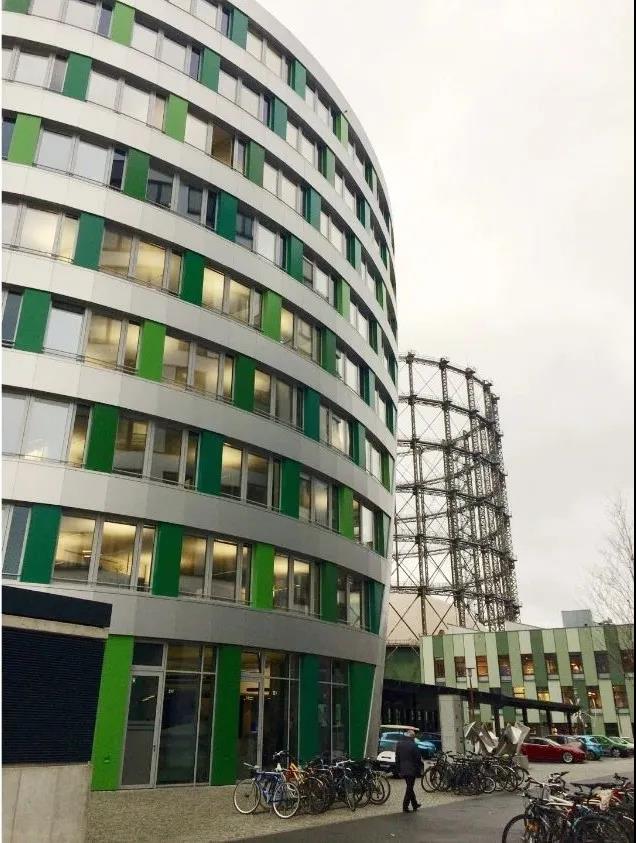
LEED Gold certified office building
Photography by
Ralph Wahnschafft
Sustainable operation
The EUREF
Campus is designed to achieve environmental sustainability, generate its own
renewable energy, and optimize efficiency of local energy use. In terms of CO2 emission, the EUREF Campus already meets the emission targets envisioned by the
Federal German Government for the year 2050 since 2014.
Replication of the EUREF Campus Best
Practice Model
Berlin’s EUREF Campus hosted
the Annual Forum of GFHS in 2013 and received the "Best Practice of Global
Urban Renewal", which was awarded by the Global Forum on Human Settlements
in the same year.
Berlin’s EUREF Campus has proved to be a
very commercially profitable business. The EUREF Campus concept is thus already
being replicated in some other cities, including the cities of Düsseldorf and
Essen, Germany. Members of the management of EUREF Campus are also providing
technical and business advisory services to clients in other countries,
including China.
Additional
information
Additional information on
EUREF Campus can be obtained from www.euref.de. The website also features informative
video clips (in both German and English languages).
Contributed by Ralph Wahnschafft, Senior Advisor on Sustainable
Development Policies, Global Forum on Human
Settlements (in 2020)
(Photos source: EUREF Campus)
Copyright © Global Forum on Human Settlements (GFHS)
